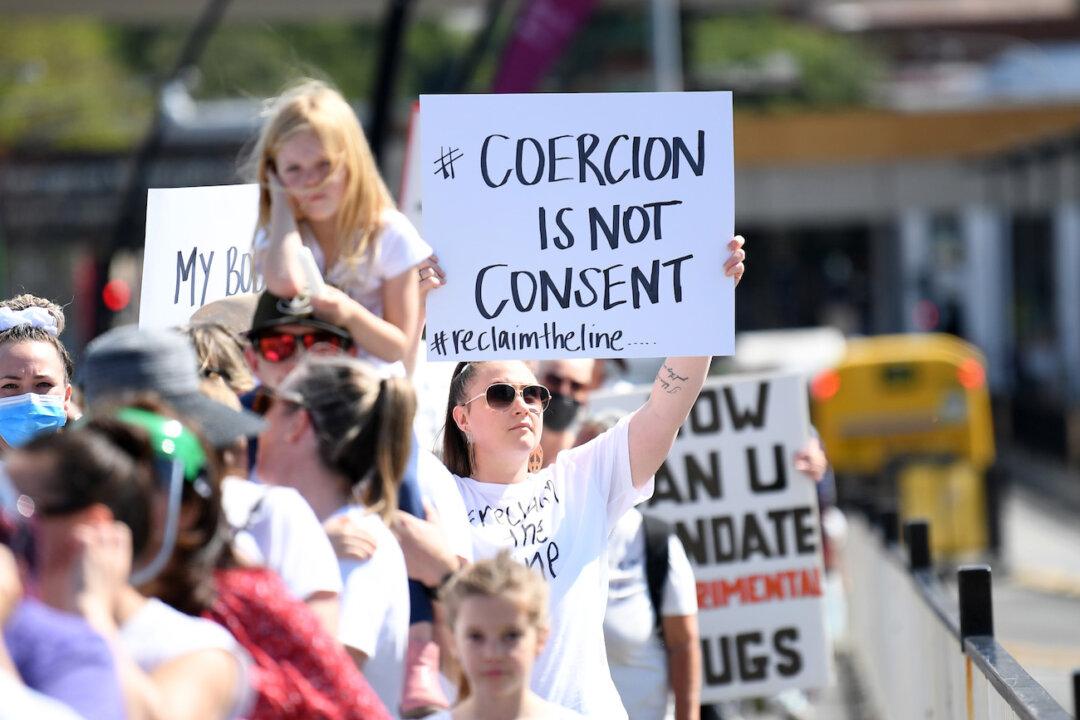Heads of Pfizer Australia have dismissed arguments that the vaccine mandates coerced Australians into getting vaccinated for COVID-19, saying they had a choice.
Appearing before an Australian senate inquiry into the COVID-19 vaccine mandates, Pfizer Country Medical Director Dr. Krishan Thiru and Dr. Brian Hewitt, the head of Regulatory Sciences for Pfizer, dismissed concerns of senators that Australians had been coerced into getting the COVID-19 vaccine.




